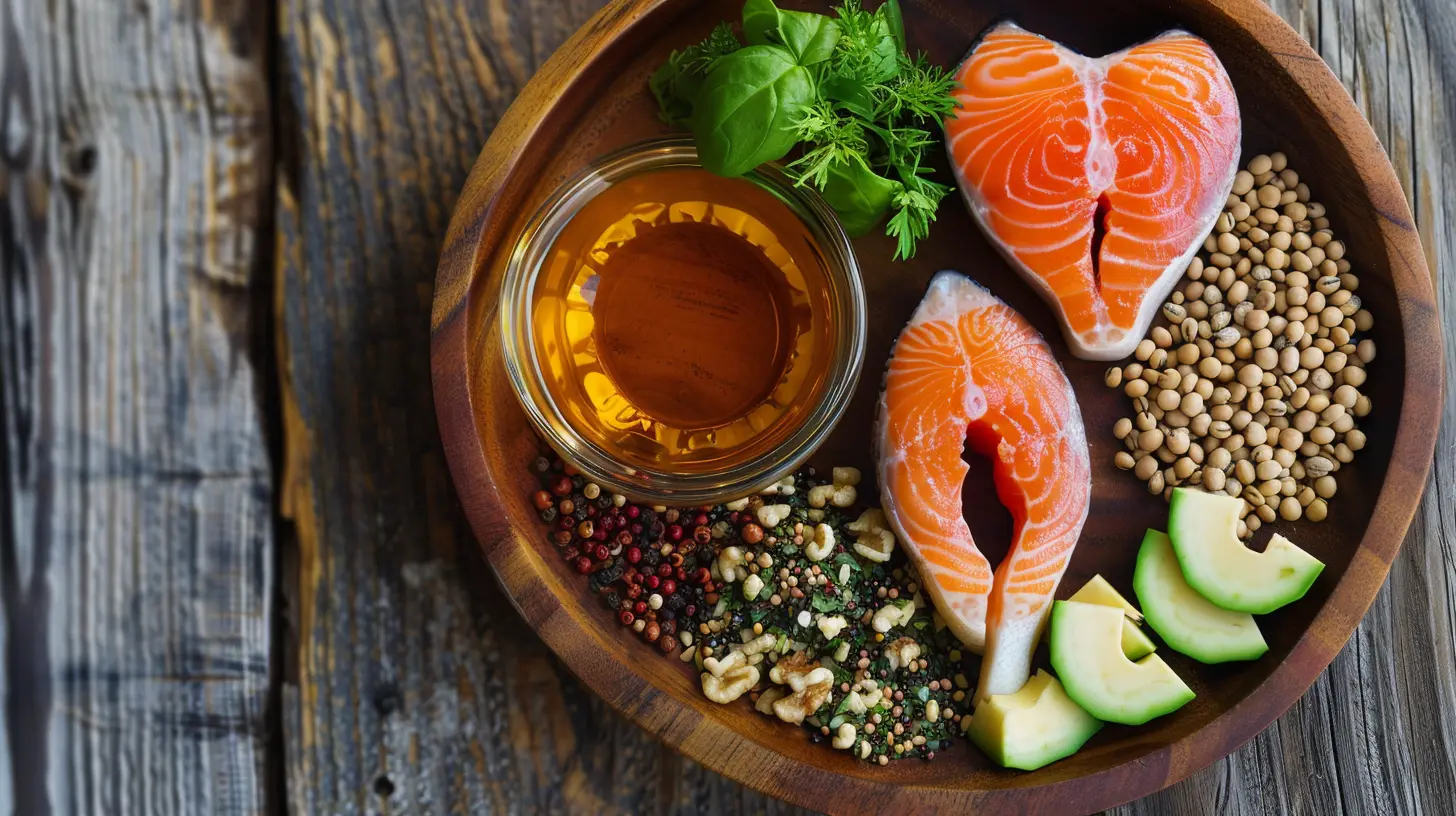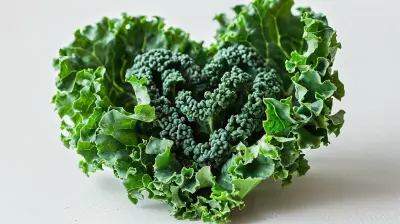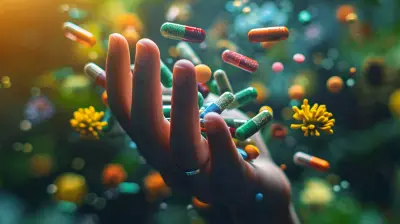Estrogen and Cholesterol: What Women Should Be Aware Of
13 July 2025
When it comes to women's health, hormones play an essential role in regulating various bodily functions. One of the most important hormones in a woman's body is estrogen. You’ve probably heard of it in the context of female reproductive health, but did you know that estrogen also affects your cholesterol levels?
That’s right! Estrogen and cholesterol are closely linked, and understanding their relationship could be a game-changer for your heart health. Whether you're in your 20s, going through menopause, or just looking to stay informed, this article will walk you through everything you need to know about how estrogen influences cholesterol levels and what women should be aware of. 
The Role of Estrogen in the Body
Estrogen is often thought of as the "female" hormone, but it does so much more than regulate periods and support pregnancy. This powerhouse hormone affects many bodily functions, including:- Bone health – Estrogen helps maintain strong bones and reduce the risk of osteoporosis.
- Brain function – It plays a role in mood stability and cognitive function.
- Skin and hair health – Estrogen keeps your skin hydrated and your hair healthy.
- Heart health – It has a direct impact on cholesterol levels and overall cardiovascular health.
As women age, estrogen levels fluctuate, especially during perimenopause and menopause. These changes can impact cholesterol levels, which in turn affects heart health. 
What Is Cholesterol and Why Does It Matter?
Cholesterol often gets a bad reputation, but it’s actually essential for your body. It's a waxy substance that helps build cells, produce hormones, and make vitamin D. However, too much of the wrong kind of cholesterol can lead to serious health problems, including heart disease.There are two main types of cholesterol:
- Low-density lipoprotein (LDL) – Often called "bad" cholesterol because it can build up in the walls of your arteries, leading to blockages and an increased risk of heart attacks or strokes.
- High-density lipoprotein (HDL) – Often known as "good" cholesterol because it helps remove LDL from your bloodstream.
Maintaining a healthy balance between LDL and HDL is crucial for heart health. And guess what? Estrogen plays a major role in keeping that balance in check! 
How Estrogen Affects Cholesterol
1. Estrogen Helps Increase HDL (The "Good" Cholesterol)
Estrogen has a protective effect on the heart by increasing HDL cholesterol levels. Higher HDL levels help clear LDL from the bloodstream, reducing the risk of plaque buildup in the arteries.2. Estrogen Lowers LDL (The "Bad" Cholesterol)
Estrogen also works to keep LDL cholesterol levels in check. When estrogen levels are stable, LDL cholesterol tends to be lower, reducing the risk of heart disease and stroke.3. The Shift During Menopause
Here’s where things get tricky. As women approach menopause, estrogen levels start to decline. This hormonal shift can lead to an increase in LDL cholesterol and a decrease in HDL cholesterol, putting postmenopausal women at a higher risk for heart disease.Unfortunately, heart disease remains the leading cause of death for women, and many don’t realize how much their cholesterol levels are affected by this natural hormonal transition. 
Why Women Need to Pay Attention to Estrogen and Cholesterol
If you're in your 30s or 40s, you might not be thinking about cholesterol just yet—after all, heart disease is something that happens to older people, right? Not exactly. The foundation for heart health is laid early in life, and keeping an eye on estrogen and cholesterol levels now can help prevent complications later.Here’s why women should stay proactive:
- Symptoms of high cholesterol aren’t obvious – Unlike other health issues, high cholesterol doesn’t come with warning signs. You won’t feel it creeping up, which makes regular check-ups essential.
- Menopause increases cholesterol risks – Once estrogen levels drop, LDL levels can rise, leading to a greater risk of heart disease.
- Family history matters – If heart disease runs in your family, paying attention to cholesterol becomes even more important.
How to Maintain Healthy Estrogen and Cholesterol Levels
The good news? There are plenty of things you can do to keep your estrogen and cholesterol levels in check. Here are some practical steps:1. Eat a Heart-Friendly Diet
Food plays a massive role in managing cholesterol. A diet rich in whole, nutrient-dense foods can help maintain healthy cholesterol levels. Focus on:- Healthy fats – Avocados, olive oil, nuts, and fatty fish help boost HDL cholesterol.
- Fiber-rich foods – Oats, beans, lentils, and flaxseeds help lower LDL cholesterol.
- Lean proteins – Chicken, turkey, and plant-based proteins help keep fats balanced.
- Antioxidant-rich foods – Berries, dark leafy greens, and green tea help reduce inflammation and support heart health.
2. Get Moving
Exercise does wonders for both cholesterol levels and overall hormone balance. Activities like:- Cardio exercises (walking, running, cycling) help boost HDL cholesterol.
- Strength training (bodyweight exercises, resistance bands) supports hormonal balance.
- Yoga and stretching can help reduce stress, which plays a role in cholesterol and hormone regulation.
3. Manage Stress Levels
Chronic stress leads to inflammation, which can negatively impact your cholesterol levels. Try stress-reduction techniques like meditation, deep breathing, or simply taking time for yourself every day.4. Consider Hormone Therapy (If Needed)
Some women experiencing severe menopause symptoms might consider hormone replacement therapy (HRT). While HRT can have benefits in managing cholesterol, it’s not for everyone. Speak with a healthcare provider to weigh the pros and cons.5. Get Regular Health Check-Ups
Annual cholesterol screenings and hormone level tests can help you stay on top of any changes. Don’t wait until symptoms appear—prevention is always better than treatment.Final Thoughts
Estrogen and cholesterol share a deep connection that directly impacts a woman’s heart health. While estrogen helps maintain balanced cholesterol levels, the decline in this hormone during menopause can put women at a higher risk for heart disease. That’s why it’s essential to take charge of your health now—through diet, exercise, stress management, and regular check-ups.By making small, proactive lifestyle changes, you can support both your hormonal balance and cholesterol levels, keeping your heart healthy for years to come. Remember, your body works hard for you—give it the care and attention it deserves!
all images in this post were generated using AI tools
Category:
CholesterolAuthor:

Jackson Mahoney
Discussion
rate this article
1 comments
Amelia Acevedo
Empower yourself with knowledge! Understanding the interplay between estrogen and cholesterol is crucial for women’s health. Embrace proactive choices for a vibrant life—your wellbeing is worth every effort! Stay informed, stay healthy!
July 26, 2025 at 3:18 AM

Jackson Mahoney
Thank you for your insightful comment! Empowering women with knowledge about estrogen and cholesterol is indeed vital for overall health. Let's continue to share and promote proactive wellness choices!


